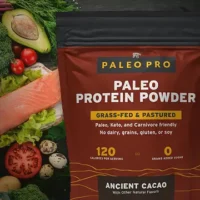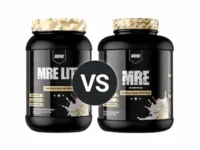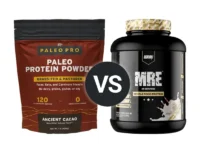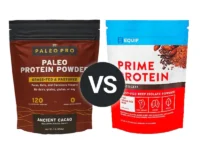Knowledge BaseYou're Questions Answered
Is beef protein powder a complete protein?
Beef protein powder is a protein supplement derived from the protein-rich parts of beef, such as muscles, tissues, and bones. It is processed to extract and concentrate the protein, resulting in a powder form that is free from most fats and carbohydrates. This supplement is an alternative to more commonly used protein sources like whey, casein, and plant-based proteins. A critical factor in evaluating the quality of a protein source is whether it is a complete protein, which means it contains all nine essential amino acids that the body cannot produce and must obtain from the diet.
Beef Protein Powder as a Complete Protein
Yes, beef protein powder is considered a complete protein. It contains all nine essential amino acids in sufficient quantities necessary for supporting various bodily functions, including muscle growth, repair, and overall health. The essential amino acids found in beef protein include histidine, isoleucine, leucine, lysine, methionine, phenylalanine, threonine, tryptophan, and valine1. The comprehensive amino acid profile makes beef protein powder an excellent choice for those seeking a high-quality protein source.
Nutritional Benefits of Beef Protein Powder
- High Protein Content: Beef protein powder typically provides a high concentration of protein per serving, often around 20-25 grams per 30-gram scoop. This makes it an efficient source of protein for muscle synthesis.
- Rich in Collagen and Other Proteins: Some beef protein powders also contain collagen, a type of protein that supports skin, joint, and gut health. The presence of collagen peptides adds additional functional benefits beyond muscle building2.
- Low in Fat and Carbohydrates: The process of creating beef protein powder often removes most fats and carbohydrates, making it a lean protein source suitable for various dietary goals, including low-carb and ketogenic diets.
- Allergen-Free: Beef protein powder is free from common allergens such as dairy, soy, and gluten, making it a suitable option for individuals with allergies or dietary restrictions.
- Digestibility: The hydrolyzation process used in making beef protein powder breaks down proteins into smaller peptides, which can enhance digestibility and absorption.
Usage and Considerations
Beef protein powder can be used in a variety of ways, including as a shake, in smoothies, or as an ingredient in cooking and baking. It is particularly beneficial for those who are sensitive to lactose or have allergies to other protein sources. However, it is important to consider the source and quality of the beef used in the protein powder, as this can affect the nutritional profile and overall quality of the product.
- Jäger, R., Kerksick, C. M., Campbell, B. I., Cribb, P. J., Wells, S. D., Skwiat, T. M., ... & Purpura, M. (2017). International Society of Sports Nutrition Position Stand: protein and exercise. Journal of the International Society of Sports Nutrition, 14(1), 20.
- Shaw, G., Lee-Barthel, A., Ross, M. L., Wang, B., & Baar, K. (2017). Vitamin C–enriched gelatin supplementation before intermittent activity augments collagen synthesis. American Journal of Clinical Nutrition, 105(1), 136-143.
Related Questions
Related Reviews
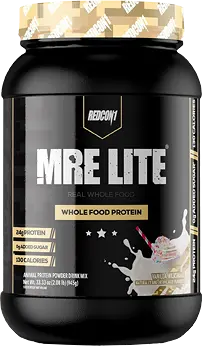
Your Answer
We are a participant in the Amazon Services LLC Associates Program, an affiliate advertising program designed to provide a means for us to earn fees by linking to Amazon.com and affiliated sites.


